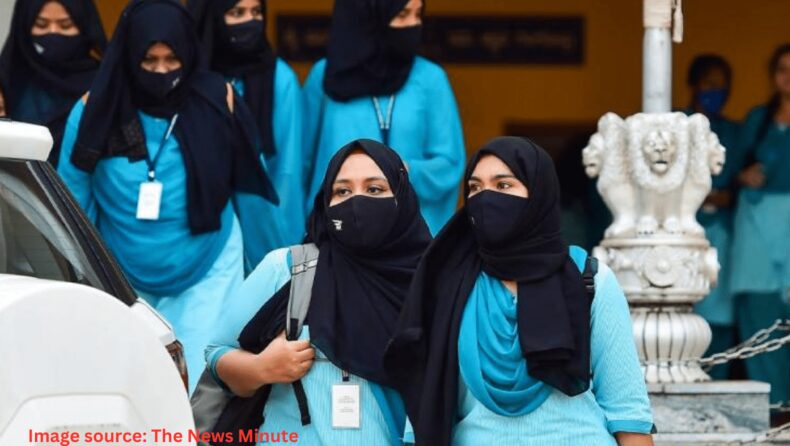According to Karnataka’s Education Minister BC Nagesh, students who are covered in the hijab will not be allowed to take the second pre-university course (PUC) exams, which are set to begin on March 9, 2024.

Hijab Not Permitted For Exams In Karnataka
Additionally, the minister stated that the number of Muslim students taking exams following the hijab ban increased, however, he did not provide any precise figures to support his assertions.
Similar to last year, students are required to take the exam in their uniforms. Students who wear the hijab will not be given the exam. The regulations must be observed.
The minister also asserted that Muslim students were more likely to show up for exams after the ban, but he did not provide specific statistics to support his claims.
He asserts that as a result of the hijab controversy, “our figures show that the number of Muslim sisters who appeared for examinations and their enrolment ratio has increased.”
In the interim, on Friday, the Supreme Court denied a request for an immediate listing of petitions requesting that students in Karnataka be permitted to wear the hijab to exams by government institutions.
After a supporter sought a dire understanding of the request, a Seat driven by Boss Equity of India DY Chandrachud stated, “I will make a Seat,” citing the fact that the young women were very nearly losing one more academic year due to the assessments beginning on Walk 9 in government schools that did not allow hijab.
The Supreme Court will be closed on March 6, 2024, for Holi, and on March 13, 2024 it will reopen.
The attorney stated that the examinations will begin on March 9, 2024. In response to the CJI’s inquiry, the attorney stated that the requests for a hearing had been brought up twice in the previous two months.
The CJI stated once more, “I will list the matter.” The lawyer, however, questioned: “What kind of tests are there?” The CJI responded, “I can’t answer your questions.”
On March 15, 2022, a three-judge bench comprised of chief justice Ritu Raj Awasthi, justice Krishna S Dixit, and justice JM Khazi delivered a verdict that was 129 pages long. They stated that it was not an “essential religious practice” to wear the hijab. As a result, the state imposed a ban on hijabs in pre-university schools.
Eight Muslim understudies moved toward the court after they were kept from entering class due to their hijab.
The college development council (CDC) issued an order prohibiting the hijab’s use on school and college campuses on January 1, 2022. Consequently, students protested by sitting inside the campus but outside the college building.
College administrators claim that the hijab was never worn in the classroom. During the counter-protests that began in February of the previous year as the controversy spread throughout the state, a number of students wore saffron shawls.
When a video of the principal of the government PU college in Kundapura, Udupi, closing the doors to at least 25 students wearing hijabs was made public on February 3, the issue became a larger movement.
Right-wing groups in Karnataka have demanded that azaan prayers be performed over loudspeakers, that Muslims not participate in temple fairs, that the Hindu community stop doing business with Muslims, and that halal meat is outlawed since then.













